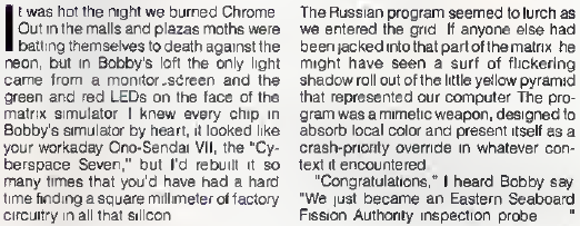african seed control
Seed and the control of seed lies at the heart of agriculture.
In Africa around 80% of seed comes from local and community saved seed resources. This seed is adapted to local conditions. It forms an integral part of community food security and agricultural integrity. This entire traditional system is now under threat.
A broad front of commercial interests, aided and abetted by the World Bank, the American Seed Association and government agencies, along with front groups, academics and so-called philanthropists, are endeavouring to alienate this crucial resource. […]
What is at play here is a direct conflict between peasant farmers networks and the neo-colonial attempt to subvert African agriculture by restrictive, first world regulation. The Southern African model is being repeated in East and West Africa, through similar comprador networks.
What will happen should ↑UPOV [Union internationale pour la protection des obtentions végétales] be broadly adopted? As soon as indigenous seed becomes contaminated by patent protected seed varieties, all rights to share and trade that seed will be lost, forever.
The irony of this is profound, as the very germplasm, which ↑Monsanto and ↑Pioneer rely on is the result of thousands of years of peasant breeding that remains categorically unrecognised. What is good for the goose is clearly not good for the gander. The end result will only see one winner, which will certainly not be indigenous African farmers. (Ashton 2013)
beauty of science
We must not forget that when radium was discovered no one knew that it would prove useful in hospitals. The work was one of pure science. And this is a proof that scientific work must not be considered from the point of view of the direct usefulness of it. It must be done for itself, for the beauty of science, and then there is always the chance that a scientific discovery may become like the radium a benefit for humanity. (↑Marie Curie, Lecture at Vassar College, Poughkeepsie, New York, 14 May 1921)
source
‘↑Source‘ is an astounding Japanese independent cyberpunk short-film by director A.T.—it’s not embeddable, as it seems, so go and ↑watch it on Vimeo …
transformation of reality
I well remember going to conferences in 2006 and 2007 where trendy social theorists presented papers arguing that these new forms of securitization, linked to new information technologies, heralded a looming transformation in the very nature of time, possibility—reality itself. I remember thinking: “Suckers!” And so they were. (Graeber 2011: 15)
Ich erinnere mich an Vorträge aus den Jahren 2006 und 2007, in denen Gesellschaftstheoretiker auf der Höhe ihrer Zeit darlegten, dass diese neuen Formen der Verbriefung in Verbindung mit den neuen Informationstechnologien eine bevorstehende Transformation der Natur von Zeit und Möglichkeit—ja der Realität ankündigten. Ich weiß noch, dass ich dachte: “Blödmänner!” Und das waren sie wirklich. (Graeber 2012 [2011]: 21-22)
cyberpunk and postcyberpunk
Something seems to be in the air. Just recently we had Jiré Emine Gözen’s doctoral thesis ‘↵Cyberpunk Science Fiction‘ (2012), now Krzysztof K. Kietzman has published his M.A. thesis ‘↓Constructs of innocence in selected works of cyberpunk and postcyberpunk fiction‘ under a creative commons licence (and the thesis is ‘In tribute to and memory of ↑Aaron Swartz—a cyberpunk (1986-2013)’). Krzysztof ↑told boingboing:
I studied American literature in Poland and published my Masters Thesis on cyberpunk and postcyberpunk for free under a Creative Commons BY SA license. It is available online and covers the writers William Gibson (‘Neuromancer’) and Neal Stephenson (‘Snow Crash’, ‘The Diamond Age’) and the theme of innocence in cyberpunk fiction. This theme will be familiar to Boing Boing readers, as it appeared in the works of Mark Dery and John Barlow, among others. The thesis explores such topics as American individualism, escapism, religion and Rapture, ‘the rapture of the nerds’, AIs, etc. One chapter also covers cyberpunk in general.
omni collection online

This is a detail of page 72 of the July 1982 issue of the magazine ↑Omni. Depicted is the beginning of ↑William Gibson‘s short story ‘↑Burning Chrome.’ It is a bit of linguistic history, because here the word ‘cyberspace’ saw print for the very first time.
Fittingly enough in the same issue, right after the first part of Gibson’s short story, there is an article (Manna 1982) on ‘↑Tron‘ (Lisberger 1982) featuring double-paged stills, illustrating the subheading ‘A science-fiction film leaps inside a bizarre computer world’:

This picture spreads over pages 82 and 83 of Omni July 1982, showing off computer-generated imagery from ‘Tron.’ The caption reads: ‘Sark’s carrier is blasted back into its wire-frame skeleton’. It almost seems like the screen captures from ‘Tron’ serve as illustrations for ‘Burning Chrome.’
I am able to show you all this, because ↑The [Glorious] Internet Archive now carries a freely downloadable ↓complete collection of Omni magazine:
OMNI was a science and science fiction magazine published in the US and the UK. It contained articles on science fact and short works of science fiction. The first issue was published in October 1978, the last in Winter 1995, with an internet version lasting until 1998. […]
In its early run, OMNI published a number of stories that have become genre classics, such as Orson Scott Card’s “Unaccompanied Sonata”, William Gibson’s “Burning Chrome” and “Johnny Mnemonic”, Harlan Ellison’s novella “Mefisto in Onyx”, and George R. R. Martin’s “Sandkings”. The magazine also published original sf/f by William S. Burroughs, Joyce Carol Oates, Jonathan Carroll, T. Coraghessan Boyle, and other mainstream writers. The magazine excerpted Stephen King’s novel Firestarter, and featured a short story, “The End of the Whole Mess”. OMNI also brought the works of numerous painters to the attention of a large audience, such as H. R. Giger, De Es Schwertberger and Rallé.
To my mind Omni (1978-1995), together with ↑Heavy Metal (1977-), was one of the most important carriers and amplifiers of the ‘cyberpunk discourse’ (↑Wired saw the light of day not before January 1993).
digital ethnography
Digital ethnography can be understood as a method for representing real-life cultures through storytelling in digital media. Enabling audiences to go beyond absorbing facts, computer-based storytelling allows for immersion in the experience of another culture. A guide for anyone in the social sciences who seeks to enrich ethnographic techniques, ↑Digital Ethnography offers a groundbreaking approach that utilizes interactive components to simulate cultural narratives.
Integrating insights from cultural anthropology, folklore, digital humanities, and digital heritage studies, this work brims with case studies that provide in-depth discussions of applied projects. Web links to multimedia examples are included as well, including projects, design documents, and other relevant materials related to the planning and execution of digital ethnography projects. In addition, new media tools such as database development and XML coding are explored and explained, bridging the literature on cyber-ethnography with inspiring examples such as blending cultural heritage with computer games.
One of the few books in its field to address the digital divide among researchers, Digital Ethnography guides readers through the extraordinary potential for enrichment offered by technological resources, far from restricting research to quantitative methods usually associated with technology. The authors powerfully remind us that the study of culture is as much about affective traits of feeling and sensing as it is about cognition—an approach facilitated (not hindered) by the digital age.
graeber in exile

The Chronicle of Higher Education yesterday published an excellent article on ↑David Graeber: ‘↑A Radical Anthropologist Finds Himself in Academic “Exile”‘
His academic “exile,” as he calls it [Graeber meanwhile is a professor at the ↑LSE], has not gone unnoticed. “It is possible to view the fact that Graeber has not secured a permanent academic position in the United States after his controversial departure from Yale University as evidence of U.S. anthropology’s intolerance of political outspokenness,” writes Jeff Maskovsky, an associate professor of anthropology at the Graduate Center of the City University of New York, in the March issue of American Anthropologist.
That charge might seem paradoxical, given anthropology’s reputation as a leftist redoubt, but some of Mr. Graeber’s champions see that leftism as shallower than it might first appear. Anthropology “is radical in the abstract,” says ↑Laura Nader, a professor in the field at the University of California at Berkeley. “You can quote Foucault and Gramsci, but if you tell it like it is,” it’s a different story, she says. […]
Responding to anthropologists’ frequent claim that they embrace activist scholarship, he [Graeber] echoes Ms. Nader: “They don’t mean it”—at least when it comes truly radical activism.
“If I were to generalize,” Mr. Graeber says, “I would say that what we see is a university system which mitigates against creativity and any form of daring. It’s incredibly conformist and it represents itself as the opposite, and I think this kind of conformism is a result of the bureaucratization of the university.” […]
But she [Laura Nader] finds it deplorable that scholars would value superficial clubbability over originality of thought; she decries the “‘harmony ideology’ that has hit the academy.” She also thinks the fact that he “writes in English,” eschewing jargon, hasn’t helped him. […]
Mr. Graeber, who says he gets along just fine with his colleagues in London—and, indeed, with most of his former colleagues at Yale—has his own take on what scholars mean by “collegiality”: “What collegiality means in practice is: ‘He knows how to operate appropriately within an extremely hierarchical environment.’ You never see anyone accused of lack of collegiality for abusing their inferiors. It means ‘not playing the game in what we say is the proper way.'”
academia’s indentured servants
Outspoken anthropologist ↑Sarah Kendzior [<-- have a look at her blog!] has an opinon piece published at Al Jazeera, called ‘↑Academia’s indentured servants.’ Very worthwhile—here are some snippets from the beginning and the end:
On April 8, 2013, the New York Times reported that 76 percent of American university faculty are adjunct professors – an all-time high. Unlike tenured faculty, whose annual salaries can top $160,000, adjunct professors make an average of $2,700 per course and receive no health care or other benefits. […]
Last week, a corporation proudly announced that it had created a digital textbook that monitors whether students had done the reading. This followed the announcement of the software that grades essays, which followed months of hype over MOOCs – massive online open courses – replacing classroom interaction. Professors who can gauge student engagement through class discussion are unneeded. Professors who can offer thoughtful feedback on student writing are unneeded. Professors who interact with students, who care about students, are unneeded.
We should not be surprised that it has come to this when 76 percent of faculty are treated as dispensable automatons. The contempt for adjuncts reflects a general contempt for learning. The promotion of information has replaced the pursuit of knowledge. But it is not enough to have information – we need insight and understanding, and above all, we need people who can communicate it to others.
And if you already are at it, you may also like her essay on why anthropologists do ignore the Internet: ‘↑On Legitimacy, Place and the Anthropology of the Internet‘ at Ethnography Matters.

